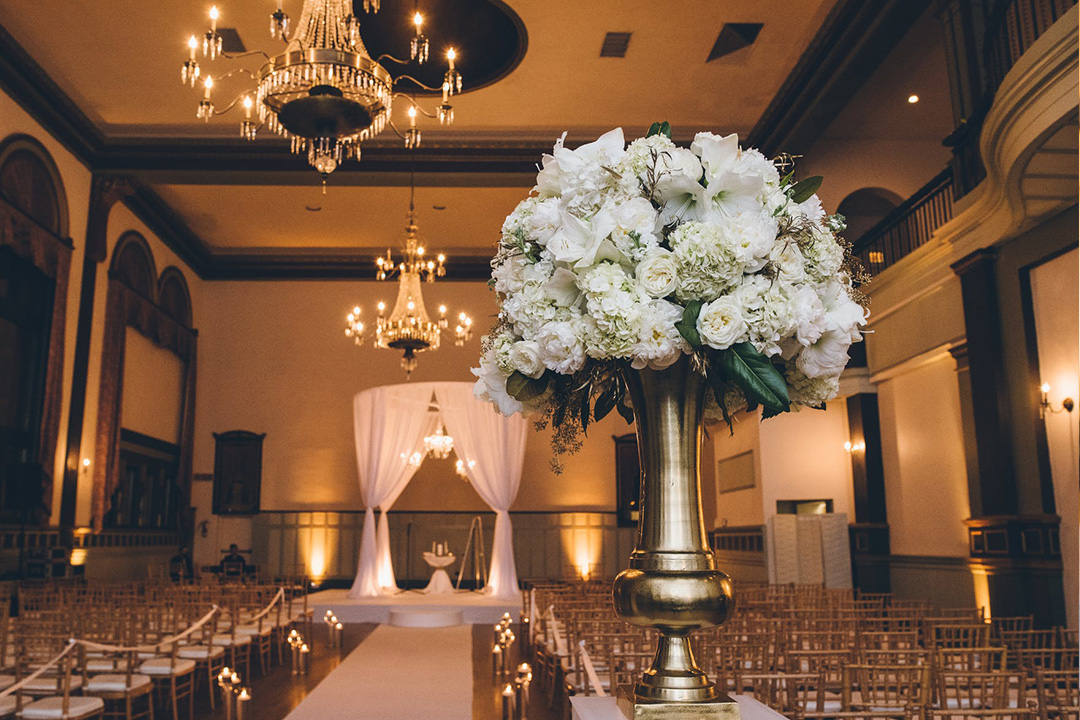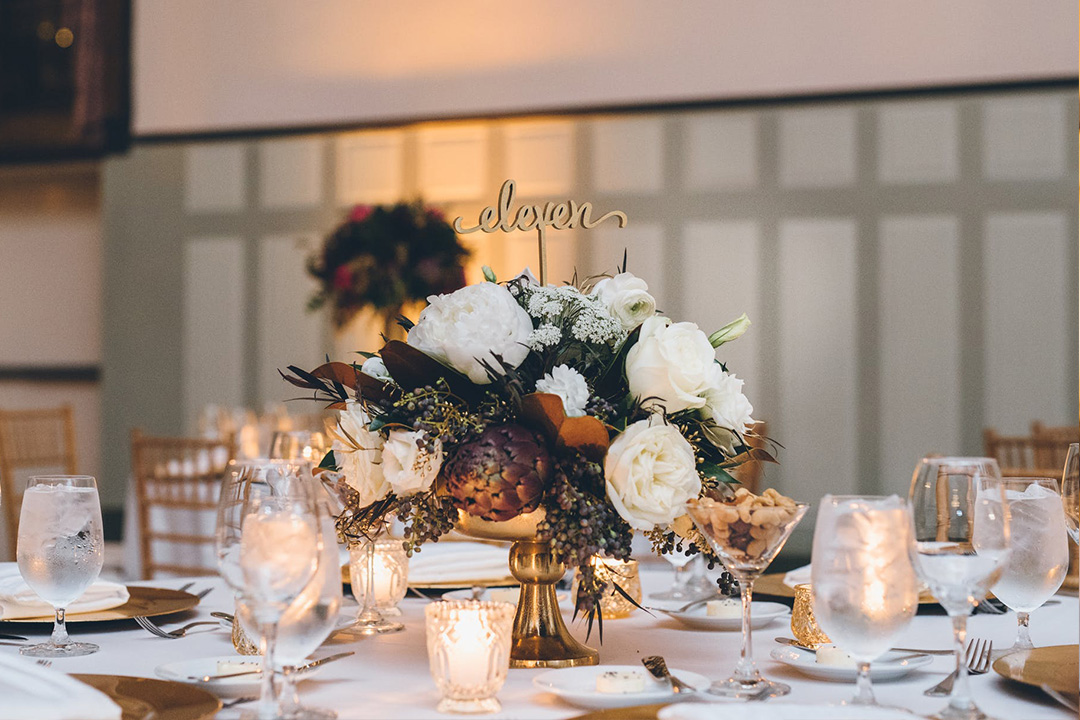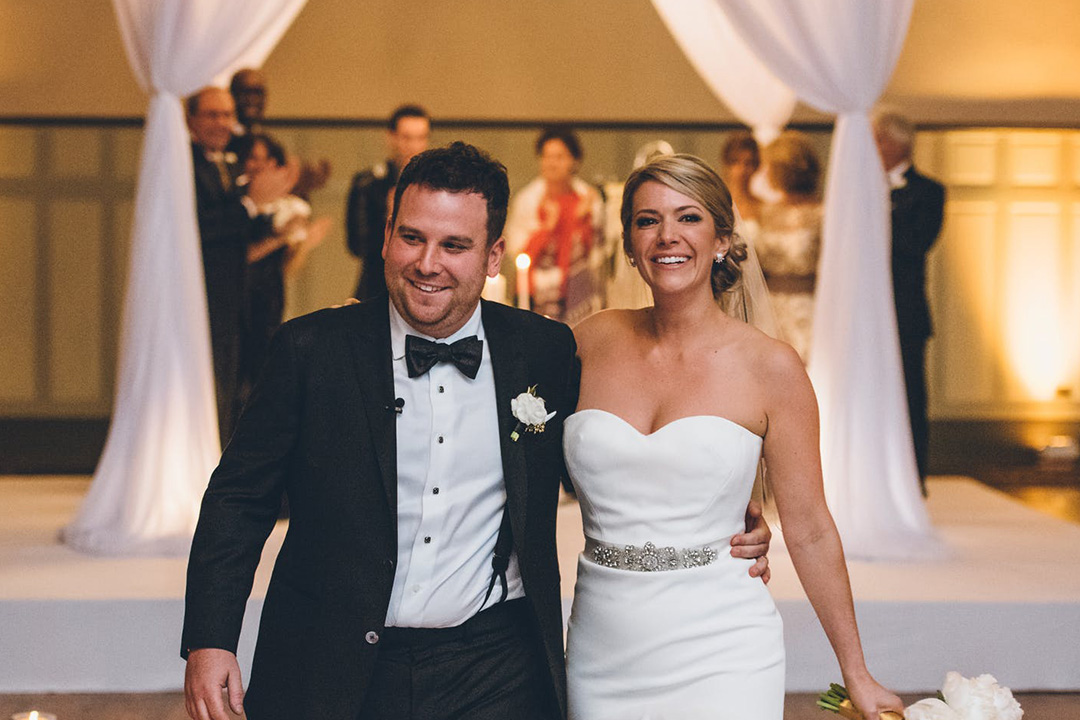Wedding Vendor Insurance: What You Need to Know
Whether you’re the one getting married or you’re a vendor playing an important role in the process, prepare for emergencies, mistakes, and accidents with wedding vendor insurance.

Thinking about what can go wrong on the wedding day is the least fun part of wedding planning. Whether you’re the one getting married or you’re a vendor playing a role in the process, it’s important to consider the what-ifs, and, more importantly, plan for them. The best way to prepare for emergencies, mistakes, and accidents is to purchase wedding vendor insurance. Make sure that you, your partners, or your vendors are insured, so that no one finds themselves lost at sea without a paddle, or, worse, financially responsible if something goes wrong.
What Is Wedding Vendor Insurance?
Although we wish we could, we can’t guarantee that the wedding day will go off without a hitch. So, it’s best to be prepared in the event that “a hitch” is something major like a bodily injury or property damage. Whether you’re a wedding vendor yourself or the bride-to-be, you need to know what kind of insurance is expected of you, and why you should care.
Vendor insurance is referring to vendor liability insurance. If a vendor is held liable for any injuries or property damage at a wedding or event, a liability policy ensures that they are protected and pays out any damages resulting from lawsuits.
What Is Covered?
Knowing exactly what vendor liability insurance covers will help justify why you need it and what you should be looking for in a plan.
Personal Injury
If, heaven forbid, someone is injured at the hand of you or your services or equipment, eg. someone trips over your tripod or the hanging floral arrangement comes loose and hits someone in the head, a liability insurance policy will cover medical expenses or any other damages that result from the injury and lawsuit.
Property Damage
If you cause damage to the property while conducting your services, eg. the food spills and stains an antique rug or other unforeseen circumstances, a liability insurance policy will cover the cost of repairs. If you happen to be sued due to the damage, your plan will cover the cost of defense and any damages you have to pay out up to the limit of coverage you have obtained.

Employees
Yep, your employees are covered, too! Anyone employed by you, the vendor, to work the wedding or special event on the business’s behalf is covered under a vendor liability policy.
Equipment
If you are a vendor shopping for an insurance plan, and you use expensive equipment to conduct your services, you should look for a plan that includes equipment coverage or offers it at an additional expense. Although you will likely have to pay a deductible, this option will pay out funds for the replacement cost of any lost or damaged equipment, which can be substantial if you’re a videographer, photographer, or musician.
Type of Vendors Covered
Most wedding vendors are eligible for a vendor insurance policy. These include wedding planners, caterers, florists, photographers, videographers, musicians, DJs, and bands, in addition to specialty vendors, such as stylists, food stand owners, photo booth operators, etc. Any vendors serving alcoholic beverages are not covered under most traditional vendor liability policies.
Why You Need Vendor Insurance
Part of being a professional means that you carry your own insurance. It’s not only risky not to be covered, but you may also lose your business down the line if a future client’s venue requires it. If you’re hiring a vendor, asking for proof of insurance not only protects you in worse case scenarios, but it is also a good way to vet the seasoned pros from vendors who are just starting out (and may not know what they’re doing).
If You’re a Wedding Vendor
As a vendor, you don’t want to be held financially responsible if something goes wrong on the wedding day. Even if you take every precaution possible when fulfilling your services, there is a lot you won’t have control over. What if the wind tips over the candles you set up, or a shattered glass falls into the drinks you were mixing? You can use your imagination about other scenarios, but the outcome of any of these chain of events isn’t pretty. And the consequence could be a staggering lawsuit. A lawsuit could not only cost you a lot of money, but, worst-case scenario, could also cost you your business.
Any professional knows that you can’t predict what will happen on any given wedding day. Sure, the possibility you yourself will cause an accident that hurts someone or damages the venue is super low, but it’s better not to leave it up to chance. Having insurance is crucial in the one-off case where you do get sued.
Whether you’re a caterer, a florist, or a mom-and-pop bakery, you need vendor insurance. The one exception is for venues. Wedding venues will have larger insurance policies, and they can also be added to a couple’s liability insurance plan for each individual wedding. In fact, it’s often required.
If You’re Hiring a Wedding Vendor
As the host, you’re ultimately responsible for anything that goes wrong at your wedding. And, while we’re sure yours will be positively perfect, it’s important to be prepared. Secure the right wedding insurance plan for you—these can cover everything from a misplaced gift to a golf cart crash—so that you don’t have to worry about what you can’t control. It’s not only important that you are insured, but that your vendors are, too.
If you’re working with a reputable venue, they probably require that you not only have a host liability insurance policy, but also that the venue is listed on the policy as an additional insured party. Whether you've booked a wedding venue in Cincinnati, OH or Los Angeles, CA, your venue may also require all on-site vendors to have individual insurance policies as well, and may even ask you for proof. Whether or not your venue requires it, though, it is important that you confirm each of your vendors has their own liability insurance policy. Proof of insurance from your vendors shows that they are both responsible and reputable, and that they are covered if anything goes wrong.
For larger businesses, vendors will likely already have insurance, but be sure to double-check that they do. For smaller businesses, vendors may not already have insurance, but they can obtain it through a variety of providers that offer event-by-event or short-term coverage. Keep in mind that additional costs for your smaller vendors who have to obtain short-term insurance may fall to you.
Vendor Red-Flags
If your vendor doesn’t have insurance, ask yourself why? Are they just starting out and haven’t yet learned the ropes? Do they not have the business acumen or ample budget to secure insurance? Not having insurance should be a red flag and should make you take a second look at the vendor before booking them. Other indicators that you may want to look elsewhere for services are:
- They have received negative reviews.
- They don’t have a website.
- Their pricing seems too good to be true.
- They ask you to pay in full upfront.
Being wary of vendors who check any or all of these boxes will protect you in the long run, even if it means you have to restart your search.
How Much Does Vendor Insurance Cost?
Vendor insurance can range in cost, based on length and features. Most providers offer both single-event coverage, in addition to multiple-month coverage so that you can find the right plan for you. If you’re obtaining insurance on your vendor’s behalf for a one or two-day wedding event, you can easily find a plan that meets your venue’s requirements for $100 to $200.
If you’re a vendor looking for coverage for multiple events, consider a longer-term plan. The coverage limit will make your premium go up or down the most, so decide how much coverage you actually need and pay attention to the difference in price. Premiums can start as low as $75 per month and go up to $200 per month, which is a small price to pay for the protection of you and your business.
Before You Buy
Do your research. It’s important to not only compare the cost of different insurance plans, but also the coverage limits, in addition to finer details, such as who and what exactly is covered. Every vendor’s business is different, so make sure that the plan you choose offers the coverage you need now and as your business grows. You should also make sure the policy is backed by a reputable provider that can pay out promised damages, should the worst occur. Once you have selected a vendor insurance policy, be sure to secure certificates of insurance from the provider for proof when venues ask.
With a simple vendor liability insurance policy you can protect yourself from situations where you and your business would otherwise be vulnerable, and at hardly any expense. Plus, taking this important step will set you apart as a true wedding professional.

